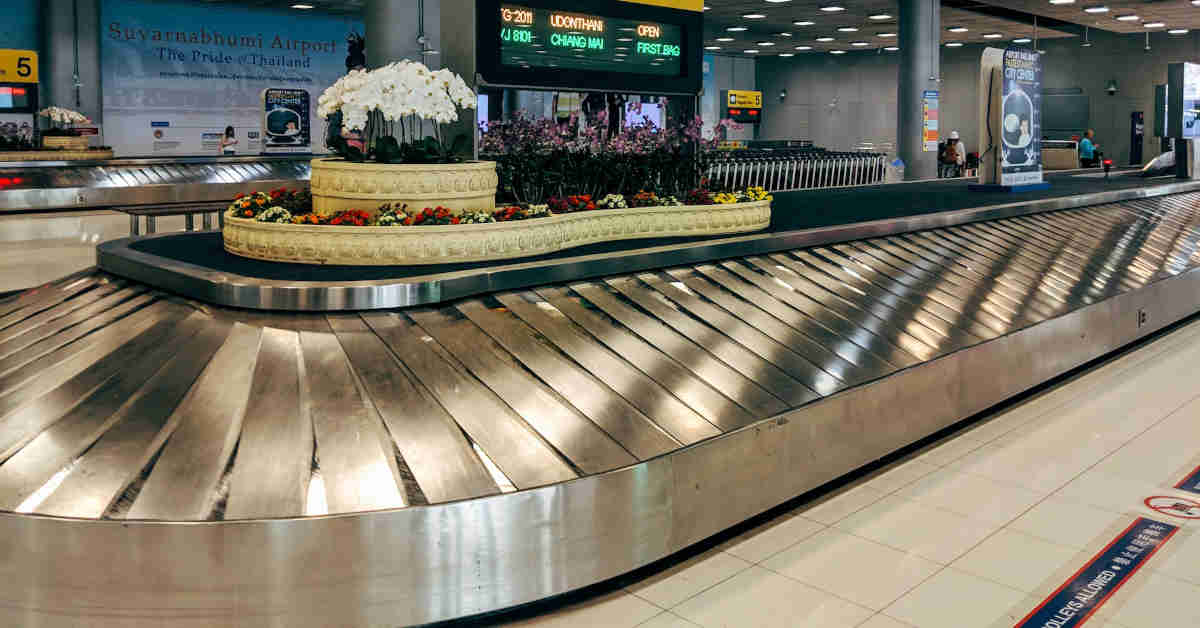The Montreal Convention, a treaty that governs liability for international air transportation, also covers issues related to checked baggage, including damage, loss, or delay.
In this post, we will explain what the Montreal Convention is and its importance when traveling internationally with checked baggage. We will discuss the airlines’ responsibilities and passenger rights, as outlined by the convention.
What is the Montreal Convention?
The Montreal Convention is an international treaty that governs the liability of airlines for passenger injury or death, as well as for loss or damage to checked baggage. The treaty was adopted in 1999 and came into force in 2003. It replaced the Warsaw Convention of 1929, which had been the governing law for more than 70 years.
The Montreal Convention and Carry On Baggage?
The Montreal Convention generally does not apply to carry-on baggage, as it is your responsibility to keep your carry-on items with you during the flight.
However, if your carry-on baggage is lost or damaged due to the airline’s negligence (for example, if it is damaged by a flight attendant), you may be able to seek compensation under the convention.
When Does the Montreal Convention Apply?
The Montreal Convention applies to all international flights that involve a point of departure or arrival in a country that has signed on to the treaty. This includes all flights that leave from or arrive in the United States, as well as to all flights that have a connection in the United States.
Which Countries Have Agreed to the Montreal Convention?
The Montreal Convention has been ratified by over 130 countries worldwide, including the United States. The following is an indicative list of countries that have ratified the Montreal Convention, in relation to baggage:
- United States of America
- Canada
- Mexico
- Brazil
- Argentina
- Australia
- China
- Japan
- South Korea
- India
- South Africa
- United Arab Emirates
- United Kingdom
- France
- Germany
- Italy
- Spain
- Switzerland
- Turkey
- Russia
This is just a small selection of the countries that have ratified the Montreal Convention.
Airlines’ Responsibilities
Under the Montreal Convention, airlines have a number of responsibilities with respect to baggage.
Inform Passengers of Your Rights and Liability Limits
Airlines must inform you of your baggage rights, including the limits of the airline’s liability and the procedures for making a claim if your baggage is lost, damaged, or delayed. This information must be provided in writing. It’s usually issued at the time of check-in or, more commonly, when you make your reservation.
Baggage Handling
Airlines are responsible for ensuring that baggage is handled properly and safely during all stages of travel. This includes:
- Tagging each piece of checked baggage so that it can be easily tracked and located in the event of a problem.
- Supplying baggage receipts for your checked baggage to aid in claiming baggage.
- Loading and unloading baggage.
- Transferring it between flights.
- Delivering it to you upon arrival.
Timely Delivery of Baggage to Your Destination
Airlines must make reasonable efforts to deliver baggage to you on time. If the baggage is delayed, the airline should provide you with regular updates on the status of the baggage and its expected delivery time.
Compensation for Delayed Baggage
If the baggage is delayed for an extended period of time, you may be entitled to compensation for any expenses incurred because of the delay, such as the cost of buying necessary items or clothing. The Montreal Convention does not specify a specific amount of compensation, but it should be reasonable and proportional to the expenses incurred.
Liability for Loss, Damage, or Delay of Baggage
Airlines are liable for the loss, damage, or delay of baggage that occurs while your baggage is in their custody. This liability is limited to a certain amount per passenger, which is currently set at 1,131 Special Drawing Rights (SDRs) under the Montreal Convention.
It’s important to note that airlines are not liable for certain types of items, such as fragile or perishable goods, money, jewelry, or electronics. You should make sure to keep these items with them in their carry-on luggage.
Passenger Rights
Passengers also have a number of rights under the Montreal Convention with respect to baggage.
The Right to Compensation
You are entitled to compensation from the airline in the event of lost, damaged, or delayed baggage, up to a maximum of 1,131 SDRs (approximately $1,800 USD at the time of writing).
The Right to Track Your Baggage
Passengers have the right to track their baggage and to be notified by the airline as soon as possible if their baggage is delayed or lost.
The Right to File a Claim
You have the right to file a claim with the airline for lost, damaged, or delayed baggage.
The Right to Claim for Extra Expenses
If baggage is delayed, you have the right to claim extra expenses, such as the cost of buying necessary items like toiletries and clothing.
Making a Claim for Lost, Damaged, Or Delayed Baggage
If your baggage is lost, damaged, or delayed, you have the right to make a claim for compensation from the airline. Under the Montreal Convention, the airline has to provide a written response to any claim within 21 days of receiving it.
It is also important to follow the airline’s procedures for reporting lost, damaged, or delayed baggage.
In the case of lost or damaged baggage, you should report the problem to the airline as soon as possible and provide documentation of the value of the lost or damaged items.
In the case of delayed baggage, you should file a claim with the airline and keep receipts for any expenses they incur as a result of the delay.
If the airline denies the claim or doesn’t respond within 21 days, you may take legal action to recover your losses. However, it is important to note that the Montreal Convention sets a strict time limit of two years for bringing a claim against the airline.
Pros and Cons of the Montreal Convention
Pros of the Montreal Convention
The Montreal Convention improved on many of the Warsaw Conventions shortcomings, including how it was inconsistency applied, and placing more of the burden on the passenger.
Here, we’ll explore a few of the advantages that the Montreal Convention provides.
Increased Liability Limits
One of the primary advantages of the Montreal Convention is that it provides increased liability limits for airlines. Under the Warsaw Convention, airlines were only liable for up to $20 per kilogram of checked baggage. This meant that if your luggage was lost or damaged, the airline would only be responsible for a relatively small amount.
Under the Montreal Convention, the liability limit has been increased to 1,131 Special Drawing Rights (SDRs) per passenger for checked baggage. As of February 2023, this is equivalent to approximately $1,800 USD per passenger.
Easier Claims Process
The Montreal Convention has a more streamlined and efficient claims process. Under the Warsaw Convention, passengers had to prove that the airline was at fault for any lost or damaged baggage. This could be a difficult and time-consuming process, and often resulted in passengers being denied compensation.
Under the Montreal Convention, the burden of proof is shifted to the airline. This means that airlines are responsible for proving that they were not at fault for any lost or damaged baggage. Additionally, the Montreal Convention requires airlines to provide a receipt for checked baggage, which makes it easier for passengers to prove the value of their lost or damaged items.
Consistency Across International Borders
Another advantage of the Montreal Convention is that it provides consistency across international borders. Under the Warsaw Convention, each country had its own laws and regulations about airline liability for lost or damaged baggage. This meant that passengers traveling between different countries could face different rules and standards.
Under the Montreal Convention, there is a uniform set of rules and liability limits that apply to all member countries. This provides greater consistency and predictability for passengers, regardless of where they are traveling.
Cons of the Montreal Convention
While the Montreal Convention has been widely adopted and is considered an improvement over the Warsaw Convention in many respects, it is not without its drawbacks.
Limited Liability for Airlines
One of the main disadvantages of the Montreal Convention is that it limits the liability of airlines in case of lost or damaged baggage. Under the treaty, airlines are liable for up to 1,131 Special Drawing Rights (SDRs) per passenger, which is approximately $1,800 USD as of February 2023. This amount may be insufficient to cover the full value of lost or damaged baggage.
Furthermore, the Montreal Convention places the burden on you to prove the value of the lost or damaged baggage. This can be difficult, particularly in cases where you don’t have receipts or other documentation to support your claim.
Lack of Transparency
Another disadvantage of the Montreal Convention is that it can be difficult to understand their rights and the limitations of the airline’s liability. The treaty is complex and written in legal language, which can be difficult for the average person to understand. In addition, airlines are not always forthcoming with information about their liability or the claims process, which can leave one feeling frustrated and powerless.
Limited Recourse for Passengers
Another issue with the Montreal Convention is that it can be difficult to seek recourse in cases of lost or damaged baggage. The treaty requires that you file a claim with the airline within a certain timeframe, typically within 7 days for lost baggage and 21 days for damaged baggage. If the airline denies the claim or offers a settlement that is deemed inadequate, you may need to pursue legal action, which can be time-consuming and expensive.
Inconsistencies in Enforcement
Finally, there can be inconsistencies in the enforcement of the Montreal Convention across different countries and airlines. Some airlines may interpret the treaty more broadly or narrowly than others, and some countries may have different regulations or interpretations of the treaty. This can lead to confusion and uncertainty for passengers, particularly those traveling internationally.
Final Thoughts
Losing your checked baggage can be a stressful experience in your home country – this is magnified when traveling internationally. You may be unsure of the rules and regulations that exist in the country that you’re traveling in.
Thankfully, well over 100 countries have ratified the Montreal Convention. This provides much more consistency with handling baggage issues when traveling overseas.
The convention also improved upon the Warsaw Convention. It standardized many of the regulations within the convention and shifted more of the burden on airlines. It also increased the amount of compensation an affected passenger could claim.
However, it’s not perfect. The limit of liability may not be enough for some passengers. If you fall into this category, you may want to consider buying baggage insurance. One of your existing credit cards may already offer this benefit.
Sources



